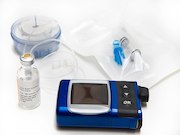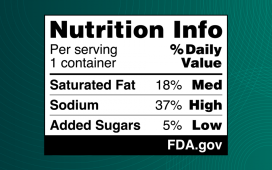Mean HbA1c levels highest for emerging adults (age 18 to <25) and lowest for older adults (age ≥65)
THURSDAY, May 31, 2018 (HealthDay News) — Type 1 diabetes self-management behaviors vary across adult developmental stages, according to a study published online May 25 in Diabetes Care.
Margaret M. McCarthy, Ph.D., from the New York University Rory College of Nursing in New York City, and Margaret Grey, Dr.P.H., R.N., from the Yale School of Nursing in Orange, Conn., examined patterns of diabetes self-management behaviors and predictors of glycemic control in 7,153 adults enrolled in the Type 1 Diabetes Exchange clinic registry. Participants were classified into four adult developmental stages: emerging (age 18 to <25 years), young (age 25 to <45 years), middle-aged (age 45 to <65 years), and older adults (age ≥65 years).
The researchers found that emerging adults and older adults had the highest and lowest mean hemoglobin A1c levels, respectively (8.4 ± 1.7 percent and 7.3 ± 0.97 percent, respectively). The likelihood of using an insulin pump or continuous glucose monitor was lower for emerging adults (56 and 7 percent, respectively), and emerging adults were more likely to miss at least one insulin dose per day and have had an episode of diabetic ketoacidosis in the past year (3 and 7 percent, respectively). In each age group, different factors were associated with hemoglobin A1c ≥7 percent; the frequency of blood glucose checks and missed insulin doses were factors noted across several groups.
“When discussing diabetes self-management, providers may consider a patient’s developmental stage, with its competing demands, such as work and family; psychosocial adjustments; and the potential burden of comorbidities,” the authors write.
Copyright © 2018 HealthDay. All rights reserved.








